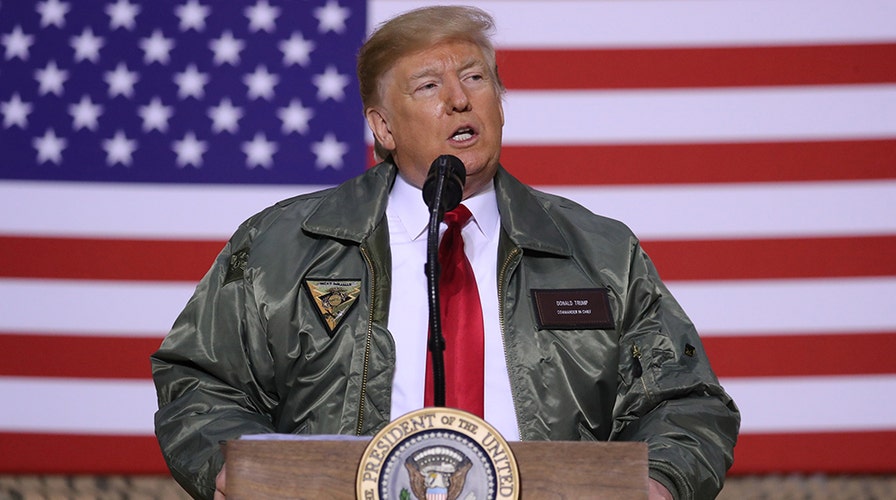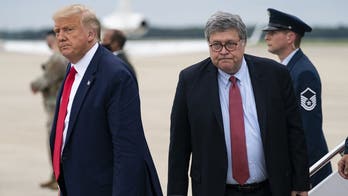Fox News Flash top headlines for Dec. 7
Fox News Flash top headlines for Dec. 7 are here. Check out what's clicking on Foxnews.com
President Trump announced Friday that he will hold off on officially designating Mexican cartels as terrorist organizations while he works with the Mexican president "to deal decisively" with the issue.
"All necessary work has been completed to declare Mexican Cartels terrorist organizations," Trump tweeted Friday. "Statutorily we are ready to do so. However, at the request of a man who I like and respect, and has worked so well with us, President Andres Manuel @lopezobrador_ we will temporarily hold off this designation and step up our joint efforts to deal decisively with these vicious and ever-growing organizations!"
Mexico's foreign minister Marcelo Ebrard thanked Trump on Twitter for his decision.
"I appreciate President Donald Trump's decision to postpone the designation of organizations as terrorists at the request of President López Obrador, who also respects and appreciates him," Ebrard said.
Obrador praised Trump's decision at an event Friday in his home state of Tabasco.
“I celebrate that he has taken our opinion into account,” the Mexican president said, according to The New York Times. “There has to be cooperation with respect for our sovereignties, cooperation without interventionism. And I think it was a very good decision that he took today."
Designating cartels as foreign terrorist organizations (FTOs) could lead to tougher financial penalties and legal ramifications for those involved who are tried in the U.S. Once a group is designated a terrorist organization, known members are prohibited from entering the country and it is illegal for those in the U.S. to intentionally provide support. Financial institutions are barred from doing any type of business with the organization or its members. This could mean that an American selling drugs that originated south of the border could be prosecuted under anti-terrorism laws, and could possibly be given a life sentence.
THE IMPACT OF DESIGNATING MEXICAN CARTELS A 'FOREIGN TERRORIST ORGANIZATION'
Dozens of cartels are known to be operating across Mexico, but it's unclear which ones will receive the FTO label.
Mexican drug cartels are currently classified as drug trafficking organizations, but their criminal activity spans far beyond illegal drug trade, involving everything from murder, fraud, gun trafficking, bribery, money laundering and counterfeit smuggling, to human trafficking and extortion.
ALLEGED DOMINICAN DRUG KINGPIN LINKED TO DAVID ORTIZ SHOOTING ARRESTED IN COLUMBIA
Amb. David Johnson, vice president of the International Narcotics Control Board, said the key difference between drug cartels and terror groups such as the Islamic State (ISIS) is a profit motive versus a political motive.
“Terrorists use violence to expand a political goal. These criminals are interested in money, not politics. They don’t want the responsibility and headaches that come with political control since it could interfere with their profit-maximizing goals,” he explained. “The key reason for not labeling them terrorists is because that is not what they are. They are in it for the money. Period.”
Critics said the move could shake up bilateral relations between the U.S. and Mexico and hurt trade.
CLICK HERE FOR THE FOX NEWS APP
Clamping down on illegal migrants flowing across the U.S. southern border with Mexico, which Trump claims has contributed to an influx of drugs and violent crime in border states, has been a part of his agenda since the beginning of his administration. Efforts have been ramped up after the brutal killings of six children and three women with dual Mexican and American citizenship in the Mormon community of La Mora on Nov. 4. At the time, Trump called on Mexico to "wage war" on the cartels.
Fox News' Hollie McKay contributed to this report.





